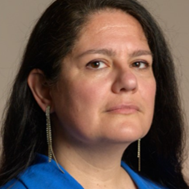Dr. Johanna Sápi
Associate Professor (John von Neumann Faculty of Informatics)
Research Group Leader (PhysCon, FFHC)
Research topics:
According to a WHO report, infertility affects many people in their lifetime: around 17.5% of the adult population – roughly one in six people worldwide – experience infertility. Infertility can be caused by a wide range of factors, but in one in four couples the cause cannot be identified (idiopathic infertility). Female infertility is usually caused by ovulation problems, the most common of which are polycystic ovary syndrome (PCOS), thyroid problems (both overactive and underactive thyroid glands can prevent ovulation) and premature ovarian failure (when the ovaries stop being productive before the age of 40). There are also a number of other causes, including surgical scarring due to pelvic surgery, cervical mucosal problems, fibroids, endometriosis, pelvic inflammatory diseases and certain medicines and drugs (non-steroidal anti-inflammatory drugs (NSAIDs)).
While hormonal balance is critically important for fertility, numerous other factors also play roles that extend beyond physiological and pathophysiological issues, encompassing related disciplines involving women’s overall health, including psychological factors like prenatal stress and anxiety. Mental disorders can alter the function of endocrine glands and the immune system at both tissue and cellular levels, creating positive feedback loops from a control theory perspective that exacerbate the problem, often seeming impossible to escape. Our research aims to identify potential intervention points in this complex, multi-factorial issue.
Research topics:
Identification of endogenous and exogenous fertility factors
Through studying both exogenous and endogenous factors of female infertility—primarily lifestyle, environmental influences, and biological mechanisms—we aim to understand how external factors such as smoking, alcohol and caffeine consumption, pollutants, stress, diet, physical activity, and socio-economic and partner-related factors influence fertility. Endogenous factors, including age, hormonal balance, and genetic factors, also play crucial roles in women’s reproductive health. Leveraging this knowledge, we are developing an application to enable personalized fertility risk assessments. The long-term objective is to establish a system focused on prevention.
Modeling Hormonal Regulation (Model Identification)
To compensate for disturbances in the hormonal system through engineering-based therapies, we first need to create a mathematical model that describes hormonal regulation, its interactions, and positive and negative feedback loops. In control engineering, this process is referred to as model identification.
Controller design
After mathematically describing hormonal regulation (typically through differential equations) using model identification, we can design controllers that aim for the physiological model output (the hormonal regulation system) to follow a given reference signal. Thus, disturbances within the system and potential external interferences can be compensated for.
Designing holistic therapy
By identifying fertility factors and using an application to support patients in finding their optimal intervention points to maximize fertility rates within minimal time horizons, and providing personalized therapy via a robustly designed closed-loop controller, we achieve a holistic therapy that is only possible through effective interdisciplinary collaboration between engineers and medical professionals. This represents our vision and mission.
Major results:
Through researching exogenous and endogenous factors influencing female infertility, we developed an application enabling personalized fertility risk assessments. The long-term goal of the application is to establish a system capable of prevention and diagnosis through algorithms driven by individual patient data.






